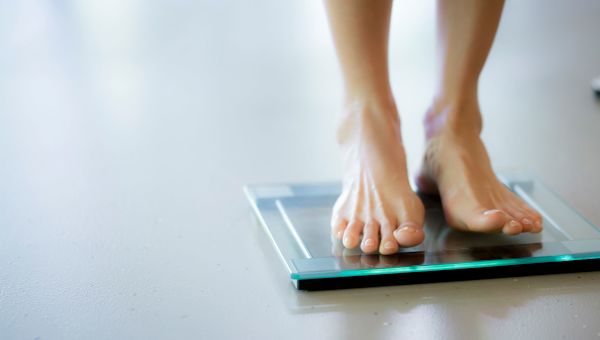6 activities you can do with AFib
Sex, exercise, and other activities may be safe for those with an irregular heartbeat.
Updated on January 6, 2026

Atrial fibrillation (AFib) is a heart condition in which the heart doesn't pump blood like it should. It’s a type of arrhythmia, or irregular heartbeat. "AFib is one of the most common arrhythmias cardiologists take care of," says Donald Orth, MD, a cardiologist in Voorhees, New Jersey.
Arrhythmias are caused by abnormalities in the heart's electrical system, which usually keeps the heartbeat regular. They can stem from medical conditions that affect the heart, such as coronary artery disease (the most common form of heart disease), high blood pressure, infection, or sleep apnea (when the airway momentarily collapses and causes breathing to stop and re-start for brief periods of time during sleep). Sometimes, we don’t know why arrythmias happen.
Medications, surgery, and electrical cardioversion (which uses electicity to shock the heart back into a regular rhythm) are used to treat arrhythmias, including AFib. If AFib goes untreated, it can lead to complications such as blood clots, which can cause a stroke.
Treating the underlying cause of AFib is the first thing a healthcare provider (HCP) will seek to do. Once your AFib is under control, it can take some time to resume your regular activities. But they’re typically safe after your HCP approves.
Here's what you need to know about living with an irregular heartbeat.

Sex is healthy for your heart
Once AFib is controlled, Dr. Orth recommends resuming your regular activities. "Sex is fine, running is fine, gym work is fine. All these things are perfectly acceptable," he says.
There may be health benefits to being intimate. Sex can help ease headaches and improve sleep, and it may be helpful for longevity. Some studies have even found that it’s associated with a lower risk of death from heart disease and other causes. (There’s little evidence to suggest that sex is linked to heart-related deaths.)
While regular sex may have health benefits, it's important to practice safe sex by using condoms. This helps to lower the risk of unintended pregnancy and sexually transmitted infections when you are uncertain about a person’s health or sexual history.

Exercise is healthy for your heart
Physical activity as you are able can help control weight, protect your heart, and boost your mood. If you have AFib, exercising can improve the strength of your heart, but you may need to take precautions when exercising.
Some people with AFib may want to avoid taxing exercises like hiking uphill or running. "Sometimes, patients have to avoid too much strenuous activity if their heart rate is not well-controlled," Orth says.
To reduce the risk of stroke, some of those with AFib take anticoagulant drugs, also called blood thinners. These increase the risk of bleeding, so people using them should be careful to avoid bumps, scrapes, and bruises. “The medications significantly reduce the chance of blood clotting and clot embolization [when a clot breaks off and gets carried in the blood to another part of the body, where it gets stuck and decreases blood supply to that area],” Orth explains.
Speak with your HCP about the best exercises for you before beginning any fitness routine. And if you experience a fluttering or pounding in your chest, fatigue, or dizziness during activity, stop and report signs to your HCP.

Managing stress is healthy for your heart
Stress is a normal part of life. But people who experience stress often or whose stressors never seem to go away may be at greater risk of high blood pressure and heart disease. This can increase the risk of developing an irregular heartbeat.
One stressful experience may not be a danger to your heart. But if you have AFib, it's worth looking into techniques to manage the mental, physical, and emotional effects of stress. Regular exercise as you are able, adequate sleep (7 to 9 hours per night), and relaxation practices like meditation and yoga can help manage your stress levels.

Traveling is safe—with preparation
For the vast majority of people with heart conditions, including Afib, flying is safe.
Here’s how to be prepared when flying with a heart condition:
- Pack your medication in your carry-on bag and keep your HCP’s name and phone number handy.
- Research and locate medical facilities at your destination in case an issue arises.
- Get up and walk when possible during your flight, since prolonged sitting can increase your risk for blood clots.
- To reduce your risk of becoming ill, wash your hands frequently and make sure your vaccinations are up to date.

A well-balanced diet is healthy for your heart
Eating a well-balanced diet rich in fruits, veggies, whole grains, lean protein like chicken, and healthy fats like canola or olive oil is a good idea for everyone. Limiting saturated fats (which are solid at room temperature), salt, and sugar-sweetened treats and drinks is especially important for someone with a heart condition.
“Some people are sensitive to certain beverages, like alcohol or too much caffeine,” Orth says. Before pouring yourself a glass of wine or cup of coffee, speak with your HCP about how they might affect you.
Greeny leafy vegetables like kale and spinach are rich in vitamin K, which can alter the effects of a blood thinner medication called warfarin, so ask your HCP if you’ve been prescribed this drug. Orth also recommends being cautious around the holidays. "What we call holiday heart syndrome, where people are drinking more alcohol than they're used to, may trigger AFib," he says.

Checking your weight regularly can keep you on track
Maintaining a healthy weight is beneficial for people with AFib. Keeping a food journal, limiting your snacks to healthy choices, and making an effort to get more physical activity as you are able throughout your day can help you achieve a healthy weight. Regularly checking your weight, recording the readings, and monitoring them over time can help keep you accountable.

MedlinePlus. Atrial Fibrillation. May 14, 2024.
American Heart Association. What is Atrial Fibrillation? March 26, 2025.
American Heart Association. How Are Atrial Fibrillation Treatment Options Determined? May 6, 2025.
Johns Hopkins Medicine. Electrical Cardioversion. 2021.
National Heart, Lung, and Blood Institute. What Is Atrial Fibrillation? November 30, 2022.
Cao C, Yang L, et al. Trends in Sexual Activity and Associations With All-Cause and Cause-Specific Mortality Among US Adults. The Journal of Sexual Medicine. July 2020.
Hall SA, Shackelton R, et al. Sexual activity, erectile dysfunction, and incident cardiovascular events. Am J Cardiol. 2010 Jan 15;105(2):192-7.
Curtis L. Sex saves lives. European Journal of Preventive Cardiology. November 25, 2020.
Sharifzadehgan A, Marijon E, Bougouin W, et al. Sudden Cardiovascular Arrest During Sexual Intercourse. Circulation. 2018;137(15):1638-1640.
Centers for Disease Control and Prevention. Benefits of Physical Activity. December 4, 2025.
Mayo Clinic. Atrial fibrillation. October 3, 2025.
American Heart Association. Lifestyle Strategies for Atrial Fibrillation. May 14, 2025.
Sepehri Shamloo A, et al. Exercise and Atrial Fibrillation: Some Good News and Some Bad News. Galen Med J. 2018 Nov 8;7:e1401.
American Heart Association. Stress and Heart Health. February 8, 2024.
Cleveland Clinic. Stress. May 14, 2024.
Katkat F. Flight safety in patients with arrhythmia. Anatolian Journal of Cardiology. 2021;25(Suppl 1):S24-S25.
Mayo Clinic. Planning to travel with atrial fibrillation? November 13, 2024.
American Heart Association. Travel and Heart Disease. 2021.
Cleveland Clinic. Managing Your Atrial Fibrillation: What to Eat (and Avoid). May 15, 2025.
American Heart Association. A Guide to Taking Warfarin. October 24, 2024.
Pathak RK, Middeldorp ME, et al. Long-Term Effect of Goal-Directed Weight Management in an Atrial Fibrillation Cohort: A Long-Term Follow-Up Study (LEGACY). J Am Coll Cardiol. 2015 May 26;65(20):2159-69.
Rosenbaum DL, Espel HM, et al. Daily self-weighing and weight gain prevention: a longitudinal study of college-aged women. J Behav Med. 2017 Oct;40(5):846-853.
January CT, Wann LS, et al. 2019 AHA/ACC/HRS Focused Update of the 2014 AHA/ACC/HRS Guideline for the Management of Patients With Atrial Fibrillation: A Report of the American College of Cardiology/American Heart Association Task Force on Clinical Practice Guidelines and the Heart Rhythm Society in Collaboration With the Society of Thoracic Surgeons. Circulation. January 28, 2019;140:e125–e151.
